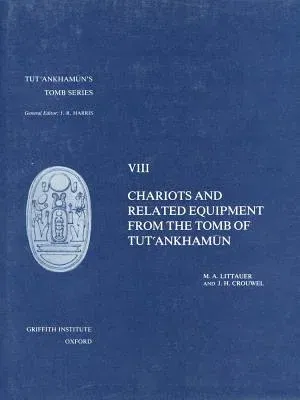M a Littauer
(Author)Chariots and Related Equipment from Tut'ankhamun's TombHardcover, 31 December 1985

Qty
1
Turbo
Ships in 2 - 3 days
Only 4 left
Free Delivery
Cash on Delivery
15 Days
Free Returns
Secure Checkout

Part of Series
Tut'ankhamun's Tomb Series
Part of Series
Griffith Institute Publications
Part of Series
Tut'ankhamun's Tomb
Print Length
118 pages
Language
English
Publisher
Griffith Institute
Date Published
31 Dec 1985
ISBN-10
0900416394
ISBN-13
9780900416392
Description
Product Details
Authors:
Book Format:
Hardcover
Country of Origin:
GB
Date Published:
31 December 1985
Dimensions:
28.5 x
22.15 x
2.39 cm
ISBN-10:
0900416394
ISBN-13:
9780900416392
Language:
English
Location:
Oxford
Pages:
118
Publisher:
Weight:
1174.8 gm